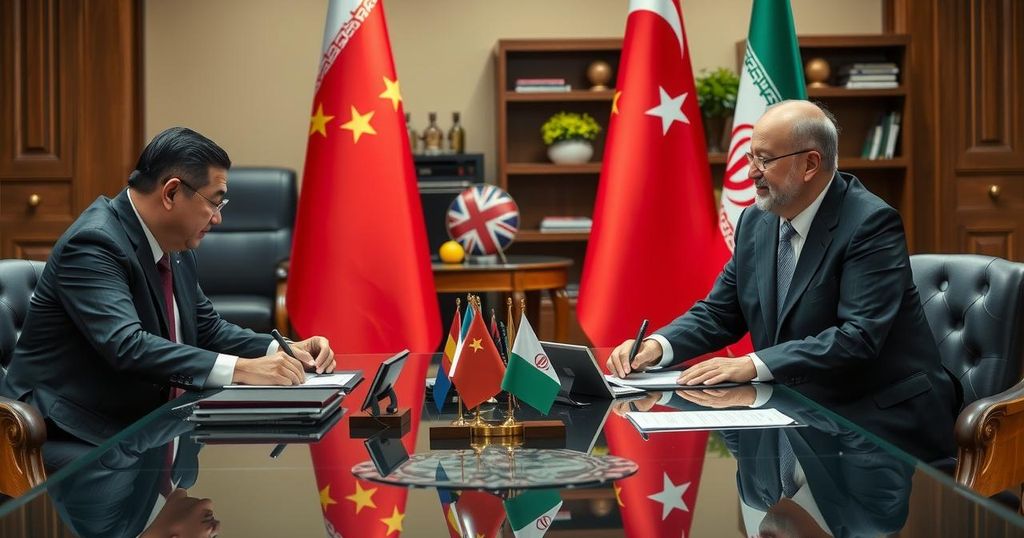China and Iran Foreign Ministers Meet in Beijing to Discuss Regional Conflicts

The foreign ministers of China and Iran met in Beijing to discuss regional conflicts, emphasizing the need for a ceasefire in Gaza and humanitarian efforts in Syria. The discussions highlighted the importance of mutual support and cooperation amidst growing geopolitical tensions, particularly regarding Iranian proxies in the region.
In a significant diplomatic meeting held in Beijing, the foreign ministers of China and Iran convened to discuss mutual concerns, focusing particularly on the situation in the Middle East. This encounter comes in the wake of recent setbacks faced by Tehran’s regional proxies, notably amidst ongoing conflicts in Gaza and Lebanon, where groups such as Hamas and Hezbollah play pivotal roles. Both nations expressed a strong commitment to achieving a ceasefire in Gaza and addressing the humanitarian crisis in Syria amid the recent escalations in violence.
During the discussions, Chinese Foreign Minister Wang Yi emphasized the importance of collaboration between the two countries on pressing geopolitical issues. He stated, “The two sides should continue to support each other on issues of mutual core interests, steadily advance practical cooperation, and improve collaboration in the multilateral sphere.” This sentiment underscores the strategic partnership that China and Iran seek to enhance, particularly within the frameworks of organizations like the Shanghai Cooperation Organization (SCO) and BRICS, which advocate for the collective interests of emerging economies.
The meeting serves as a critical dialogue in the context of evolving geopolitical dynamics, particularly against the backdrop of increasing tensions in the Middle East and the implications of U.S. foreign policy under the Trump administration. Tehran’s efforts to retain influence through its proxies alongside China’s aspirations to strengthen ties with Iran reflect their shared interests amidst global challenges. The collaboration aims not only to navigate current conflicts but also to reinforce mutual support, thereby bolstering their positions in international arenas.
The recent meeting between the foreign ministers of China and Iran reflects a broader strategic partnership emerging between these nations, particularly in response to recent geopolitical challenges in the Middle East. The situation has been further complicated by ongoing conflicts involving Iranian-backed groups, primarily in Gaza and Lebanon, where these entities have faced significant challenges. As global power dynamics shift, both China and Iran are likely seeking to strengthen their cooperation to safeguard their respective interests amid evolving diplomatic landscapes, including discussions related to ceasefires and humanitarian efforts.
In conclusion, the meeting between the Chinese and Iranian foreign ministers in Beijing marks a significant moment in their diplomatic relations, highlighting shared concerns over regional conflicts and the necessity for cooperative strategies. As each country navigates the complexities of their foreign policies and alliances, their commitment to mutual support, particularly in the face of challenges posed by U.S. involvement in the Middle East, remains paramount. This collaboration could have far-reaching implications for future geopolitical stability in the region.
Original Source: www.scmp.com








